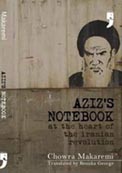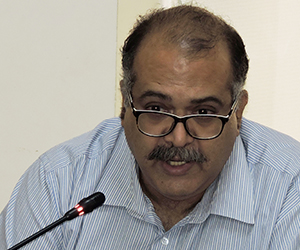Can there be anything in common between the Islamic Revolution led by the Ayatollahs of Iran, the formation of a medieval Islamic Emirate by the Taliban of Afghanistan, the Cultural Revolution unleashed by the Red Guards of Maoist China and the pathological Khmer Rouge regime of Cambodia? Apparently, apart from the blood lust that characterised all these revolutions and the regimes they fostered on the hapless people of these countries, they were also tied together by their antipathy for anything remotely modern. In sheer brutality, the Ayatollahs who presided over the Iranian Revolution appear to be mirror images of the Taliban, who ironically they denounced as savage barbarians after the fall of Kabul in the late 1990s. Worse, they were just as antediluvian in their attitudes as not only the Taliban but also the Red Guards and the Khmer Rouge. A passage in the book “Aziz’s Notebook” quotes a cleric as saying: As long as there is one person left in this country who can say ‘I am an engineer, or a doctor, or I have a masters degree’, this revolution will not stabilise. This revolutionary society must be purged of the filth of their existence, because all these people are westernised and incurable.
It isn't often that one comes across a book that is both unputdownable and at the same time difficult to read in one go because it is so disturbing that it is impossible to read it in one go. Chowra Makaremi, who has put together the notes that her grandfather wrote of the tyranny, tumult and torture that her family went through in the wake of the Iranian Islamic revolution, has brought to life exactly such book. What makes this book even more remarkable is that the author accidentally discovered the notes that her grandfather penned down not just to "bring the beloved beings back to life" but also to explain to his grandchildren "who their mother was and why she was executed".
Unlike other non-fictional accounts of terrible crimes that visit peoples, this is a first person account of the horror, brutality and cruelty that was unleashed by the Islamic Revolution. While being deeply disturbing and heart rending, it is a chronicle of the times, written not from the perspective of the winners or losers but from the perspective of the sufferers. So often tectonic events in history get reduced to just an anodyne recounting of the main developments. Something similar has happened with the Islamic revolution. With the passage of time, the turmoil in Iran, starting in the late 1970s and going on for nearly a decade, is explained away either in a couple of sentences or by just highlighting the main political and strategic developments. What the people went through, their trials, travails and tribulations, the daily grind and struggle to survive, is generally glossed over. Worse, the thousands killed during those times are reduced to just a statistic, completely ignoring the pain and suffering of those who lost their loved ones. Makaremi fills this gap by compiling her grandfather’s notes into a book which is a must read for anyone who wants a factual account of how a revolution eats its own children and the death, destruction and dislocation that revolutions, which are so often romanticised, cause.
At one level, Aziz’s Notebook is the outpouring of a helpless old man who watches his two daughters being tortured to death. It is the primal scream of a parent who is unable to do anything to stop the brute injustice of an evil regime. But at another level, it is a devastating critique of the Islamic Revolution. Aziz calls the revolution "one of the greatest scourges of history" and says "since its inception....it has progressed like leprosy, devouring the skin, the flesh and the bones of those who founded it and participated in it". His utter contempt for the ‘revolutionaries’ aside, Aziz gives a graphic description of the horrible injustices and inequities that were heaped on the people by the Mullahs.
Aziz’s Notebook is a terrifying testament of the inquisitions carried out by the mullahs in Iran. Quoting his daughter who was subjected to the worst sort of torture, he describes how forced (but also false) confessions were demanded so that they could be aired on TV, how these were justified by the judges on grounds of taqiya (telling a lie for reasons of self-preservation) and how on refusal the person was battered in torture cells. The bravery of his daughters who refused to indulge in these blatant falsehoods to implicate others (despite knowing that they would be made to suffer enormous mental and physical torture, including being taken before fake firing squads) is truly awe inspiring. The resolve and call of conscience that his daughters displayed in not repudiating their comrades is extra-ordinary because it takes a lot character to refuse to harm someone else just to save your own skin. When the mother in law of one of his daughters advises her to confess, she refuses by saying that the confessor has to then kill several ‘mujahideen’ and since she was not willing to kill even a bird, there was no way she could kill an innocent person. Compare this to the long list of Indian civil servants who even today are willing to say the most blatant lies and untruths about their colleagues only for the sake of a post-retirement job.
The bravery of Aziz’s daughters – for instance, one of them despite being arrested spins a yarn to keep the parents from worrying and later nonchalantly informs the father that she has been sentenced to death – and the terrible torment that the family went through is shakes the very soul of the reader. But more than the tragedy that visits Aziz’s family, the true value of this book lies in exposing the evil that was and continues to be inflicted in the name of religion. It is a must read for anyone who wishes to understand the truth of the Iranian Islamic Revolution. More importantly, it serves as a wakeup call for all those who try and make a case for the Taliban being allowed a second chance in Afghanistan under the pretext that they have reformed. Aziz’s Notebook nails this lie.











Post new comment